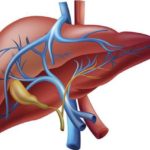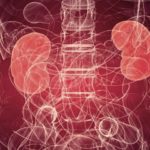Anorexia nervosa – why does eating disorder occur?
The term anorexia nervosa means ‘loss of appetite’ of nervous origin. It is a syndrome of eating disorder, characterized by three clinical features. They include self-induced starvation, the persistent effort for thinness, and the presence of signs/symptoms resulting from starvation. Anorexia nervosa is associated with disturbances of body image, which results in the perception that one is obese or fatty. These patients refuse or fail to maintain a minimally normal weight. They develop a phobia of weight gain because of misinterpretation of their body size. In the early stages of this condition, the starvation is self-imposed without any loss of appetite, though later there is complete appetite loss due to the effects of starvation.
Anorexia nervosa
Anorexia nervosa is more common in females and occurs 10 to 20 times more often than in males. Its onset usually occurs in adolescence. It is seen with the greatest frequency among young women in professions that require thin figures, like modeling and ballet dancing. It is related to psychological disturbance which occurs during the transition of body image from girlhood to womanhood. They feel helpless and have difficulty establishing autonomy in their behavior. Persons with this disorder are always preoccupied with weight, food, and body shape. The natural course of anorexia nervosa ranges from spontaneous recovery to starvation and death.
Causes of eating disorder
There are many factors implicated in the causation of anorexia nervosa. They include biological, social, and psychological factors. Sisters of patients with anorexia nervosa are more likely to be affected by this disorder. This is probably due to similar social circumstances rather than hereditary influence.
Biological factors: Endogenous opioids may have a role resulting in the denial of food in patients with anorexia nervosa. Thyroid function is suppressed in these patients. Starvation results in the cessation of menstruation due to reduced levels of concerned hormones like luteinizing, follicle-stimulating, and gonadotropin-releasing hormones. A clinical study demonstrated increased metabolism in the caudate nucleus of the brain in these patients. There is scientific evidence of altered neurotransmitter function in the brain involving serotonin, dopamine, and norepinephrine which are related to the eating behavior of an individual.
Social Factors: The social pressure to remain thin and attractive is the driving force in these patients with anorexia nervosa. Vocational training may also have an impact. People in the fashion industry, ballet dancers, and film personalities are especially prone. A desire to look young and glamorous on-screen with the associated financial incentives is a big contributory factor in the causation of this disorder. Young athletes are also at risk during competitive sports. Gay males are also at risk of developing anorexia nervosa as this body image is preferred in the gay community though it is less common in the lesbian community.
Psychological Factors: Anorexia nervosa is a response of adolescents to an increased demand of a behavior change required during maturation. These patients lack a sense of autonomy. They feel as if they are completely under the control of their parents. Self-induced starvation may be an effort to present themselves as distinctive to their parents. These young patients are unable to separate psychologically from their mothers. Many anorectic patients feel that it reflects greed to have oral desires for food and find it unacceptable. They suppress these desires and prefer to avoid food. Some of them even have fantasies of getting pregnant on oral intake. These patients frequently have poor sexual adjustment. In adults, there is a significantly decreased interest in sex.
Anorexia nervosa is a deliberate, severe weight loss in a patient with a vulnerable personality. Undernutrition produces severe metabolic changes which affect body functions adversely. Treatment by a psychiatrist, physician, and nutritionist is a must to save the life of the young person.




























